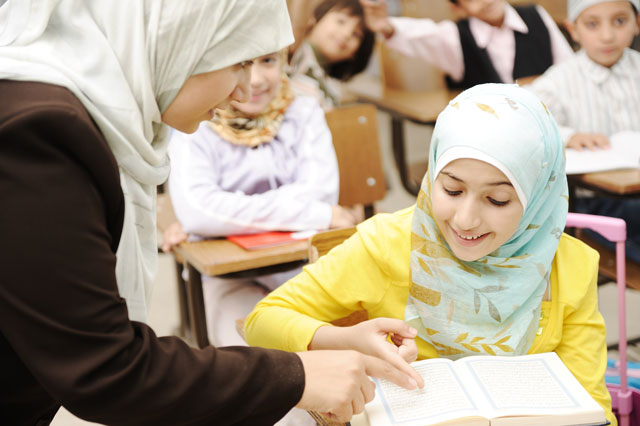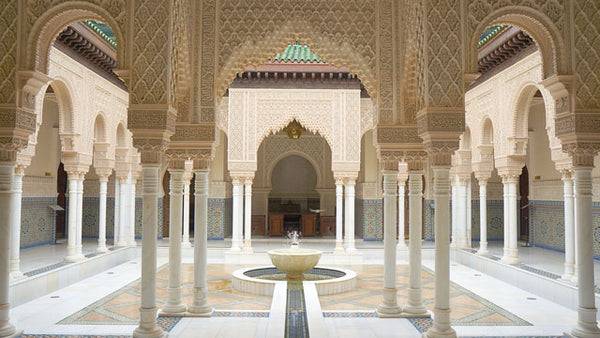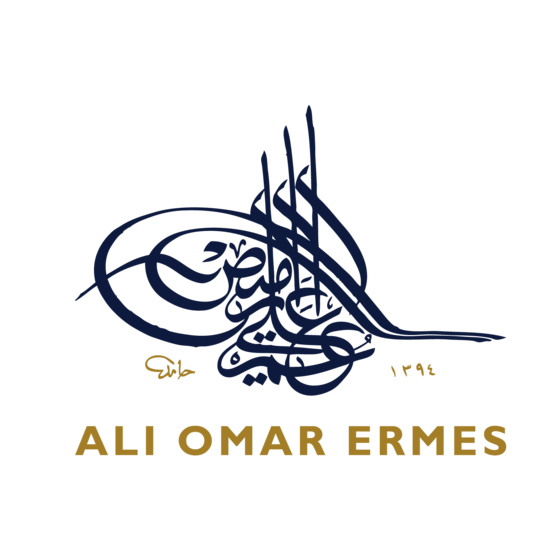The Importance of Faith-based Education for the Muslim Community

This is a speech made by Ali Omar Ermes at the ‘Faith in the UK and Development Education Seminar’, which took place on Tuesday 11th March 2003 and was organised by the Development Education Association.
Ladies and gentlemen, this is a big subject with a huge debate entailed. However, for your overwhelming good fortune and my relief, I can gladly tell you that this is not a full engagement for the subject, which can take a long time and can be very academic.
I am only here to point out a few items on several issues, some in question form and answer form and I will leave you to come to your own conclusions.
So what it is the value of faith education for a child?
And what is the value of faith education for the family?
Furthermore, what is the effect of religious education on the family unit and subsequently on the community and society at large?
The provision and preservation of faith-based education in our schools as a regular and important element of the Curriculum is undoubtedly beneficial.
Faith-based education allows a child to appreciate that life has material, spiritual and moral dimensions.
In Islam, we think fruits of knowledge such as &.To belong, to relate, to own, to have, to share, to be aware of, to feel confident, to feel capable of, to feel safe, to feel responsible, to love, to feel loved, to value, to respect, to give, to be considerate of others.
These are some of the many lessons that a child learns and experiences that might not be addressed in other subjects, such as faith-based values like compassion, forgiveness, honesty, justice and responsibility.
It will help to prepare a child to be a responsible citizen of this multi-cultural, multi-faith country, as well as citizens of the world. Through the ages, Islam taught us that we are universal citizens and that we all are brothers and sisters that relate, share and consider one another.
A quote from the Holy Quran (Surah al-Hujurat, 49:13) says:
“O Mankind, We created you from a single (pair) of a male and a female, and made you into nations and tribes, that ye may know each other, and the best among you in the eyes of God is the one who is more pious” i.e. not the one who is richer or faint in colour or the child of nobility etc.
Where would these values come from if not from faith? I do not think that any of us can expect to learn this in the stock exchange or from the Wall Street, neither do we expect to learn that from the Las Vegas Casino culture or similar institutions.
Faith-based education promotes tolerance of difference, allowing children to broaden their minds, share views and explore issues in an atmosphere of mutual respect. This contributes to the cultural development of the child through fostering the child’s awareness and understanding of the range of different beliefs, practices and values in their own society and the wider world. This child in the future will adopt an attitude of respect towards others as opposed to suspicion or hostility against anybody who does not fit the model.
The new 2001 census results tell us that there are 37 million Christians, 1.5 million Muslims, 552,000 Hindus, 329,000 Sikhs, 260,000 Jews and 144,000 Buddhists (Government Statistics). Therefore, the need for a greater understanding of different religions to achieve greater tolerance can not be under-estimated. The effects of ignorance can be dangerous, it breeds racism, xenophobia, Islamaphobia and other unsuspected phobias in the years to come, which in turn breed hatred and with regards to schools, can create discrimination, isolation and bullying, which creates low self-esteem, poor achievement and future unemployment.
Let me dwell on the word tolerance, which Muslims think is a negative word, when we want to put the right word to it in Arabic, we find it difficult to understand why people are happy to use this word because you tolerate what you do not like, you will tolerate that for a specific length of time only, but let me give you what we think is the right words, instead as we say in Arabic, one is ‘Taqdeer Al -Ghair’ which means ‘valuing the other’ or if you want to be more generous, you say ‘Al Ihtifaal Bil Ghair’ which means ‘celebrating the other’.
The benefits of faith-based education create opportunities to apply the lessons learnt to go beyond the classroom, through acting on it in the neighbourhood or work-place, the market place etc, also visits to places of worship and attendance at religious celebrations or seminars, or experiencing other people’s literature, science, arts, history, social philosophy etc, allowing a child to understand and appreciate others.
The needs of a Muslim parent are similar to the needs of any rational parent, whether Jewish, Christian, Hindu or Sikh etc.
– Parents feel that it is important that their child has the opportunity to learn their own faith first and other faiths if possible in school to help the child develop their own sense of identity and belonging.
– It helps the spiritual and moral development of a child, to consider and respond to questions of meaning and purpose in life, questions about the nature of values in human society,
– To respond to areas of morality using their knowledge and understanding of religious and ethical teaching,
– To make reasoned and informed judgements on religious and moral issues, as stated by the Agreed Government Syllabus‘s across the country.
– To consider the needs of others as well as your own needs, the Prophet Mohammed (Peace be upon him) said ‘to love for your brother/sister what you would love for yourself’ (Bukhari & Muslim) and Islam taught us that it is imperative to look after our neighbours, as the Prophet Mohammed said He is not a believer who eats till he is full and leaves his neighbour hungry’.
The list, it seems, is endless, and the need for faith-based education will always be in demand, by parents and students alike, because the values in faiths are positive and necessary. It is logic; a moral child will be a better human, a better neighbour, a better spouse, a better citizen, a better student, a better sibling etc, all this will be reflected positively on to the family and society as a whole.
Therefore, we have everything to gain from faith-based education, living in a secular society that is endlessly searching for something to fill the emptiness of our lives and hearts, the last Census statistics found that there are some 390,000 British citizens who confessed to being a Jedi as their religion..and I want to leave you to read what you will from this.
Therefore, let us fill our children’s lives and society life with enough knowledge about our various faiths, traditions, cultures etc in a way that allows everybody to know about themselves as much as they need to know about others, as the saying of the Prophet Mohammed (peace be upon him) ‘Knowledge is obligatory on every man and woman’.
People most and foremost fear what they do not know or understand, therefore, knowledge is the key and what is more important then to know about ourselves and about our brothers and sisters in humanity? And to know them with enough depth, to respect and to celebrate our universal citizenship.
Salaam or Peace be upon you.
Thank you,
Ali Omar Ermes.
1 Response
Leave a comment
Also in VALUE ADDED THOUGHT

The Arab Media in Britain
Arab Media
Ladies and Gentlemen, before I begin, I would like to remind you that this is a multi-dimensional subject, filled with contradictory issues, concerning approx 300 million people, 22 nations and an anciently, enduring but remarkably modern language. Although in this short space of time, I will only give a general feel of the matter. During the late part of the 1970s, there were a few Arab media outlets such as Al Arab and Asharq al Awsat newspapers and Al-Majaleh magazine that started to appear but it is generally agreed upon that 1980s was the decade that witnessed the birth of the British Arab media.

A Glimpse of Islamic Heritage
The slide show consisted of around 150 photographs, taken over the last 30 years by Ali Omar Ermes himself, each one showing an example of the vast heritage and history of Islam.

The Invisibility of the Arab Community in Britain
It is hard to believe that a community of immense intellectual and financial input to the British society such as the Arab community is invisible. A community of about five hundred thousand people in Britain (The Economist 1988), of which up to three hundred thousand people live or work in London alone, with approximately 200 banks and financial institutions with 150 billion worth of investment and over 10 billion worth of business (Adel Bishtawi paper for the third Arab community conference 1999, Directory of Arab-British companies 2001) input to the British society and up to ten daily newspapers and weekly magazines, plus about five satellite and radio stations. Not to mention tens of thousands of medical doctors, engineers, professors, academics, writers, poets, filmmakers, artists, etc and on top of all that, finance experts, political analysts, social experts, and voluntary workers, etc.


Lembaga Pendidikan Islam
April 29, 2025
I just read your article and I find it very informative, very inspiring. I would also like to extend an invitation to you to visit my website Lembaga Pendidikan Islam and we can collaborate with each other.
warm regard.